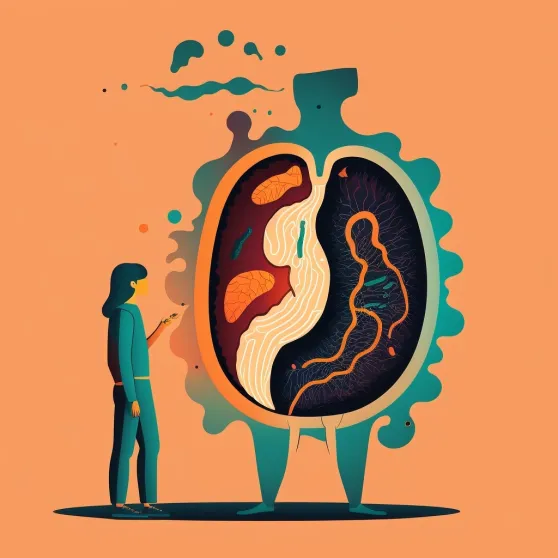Listen to Your Body: Understanding Hunger and Fullness Signals for Mindful Eating

Understanding your body’s hunger and fullness signals is essential for maintaining a healthy relationship with food. By recognizing these signals, you can avoid overeating, undereating, and unhealthy eating patterns. In this article, we will discuss hunger and fullness cues and their importance in maintaining a healthy diet.
At Jigi’s Choice Indian Meals, we understand the importance of mindful eating and focus on creating home-cooked Indian meals made from all-natural ingredients. Our daily meal delivery service is available for pre-order and daily delivery in the Tampa, FL area, providing a convenient option for those looking to maintain a healthy diet without sacrificing flavor.
Hunger and Fullness Cues
Appetite, satiety, and hunger hormones are all important components of hunger and fullness cues. Appetite refers to the desire to eat, while satiety is the feeling of fullness after eating. Hunger hormones, such as leptin, ghrelin, cholecystokinin, peptide YY, and insulin, play a crucial role in regulating appetite and hunger.
Leptin is produced by fat cells and helps regulate body weight by signaling the brain to reduce appetite. Ghrelin, on the other hand, is produced in the stomach and stimulates hunger. Cholecystokinin and peptide YY are produced in the small intestine and signal the brain to reduce hunger. Insulin helps regulate blood sugar levels and can affect hunger signals.
Blood sugar levels also affect hunger signals. When blood sugar levels drop, it can trigger feelings of hunger, while high blood sugar levels can cause feelings of fullness.
Understanding these cues can help you make informed decisions about when and how much to eat, which can lead to better overall health.
How to Recognize Hunger and Fullness Signals
Mindful and intuitive eating practices can help you recognize hunger and fullness signals. Mindful eating involves paying attention to the present moment while eating, without judgment or distraction. Intuitive eating involves listening to your body’s hunger and fullness signals to guide your eating choices.
Hunger cues include stomach grumbling, headaches, irritability, and difficulty concentrating. Fullness cues include feeling satisfied and not being able to eat anymore. It’s important to pay attention to these cues and stop eating when you feel full.
Portion control and energy balance are also essential for recognizing hunger and fullness signals. Eating slowly and taking breaks between bites can help you recognize when you’re full and avoid overeating. Energy balance involves balancing the number of calories consumed with the number of calories burned through physical activity.
Eating Patterns and Habits

Metabolism and nutrient density also affect hunger and fullness signals. Eating nutrient-dense foods, such as fruits, vegetables, and whole grains, can help regulate appetite and prevent overeating. Metabolism, the process by which your body converts food into energy, also affects hunger signals.
Eating patterns, meal frequency, and meal timing also play a role in regulating hunger and fullness. Eating smaller, more frequent meals throughout the day can help regulate appetite and prevent overeating. Eating a balanced breakfast can also help regulate hunger signals throughout the day.
Emotional eating and stress eating can also affect hunger signals. Emotional eating involves using food to cope with emotions, while stress eating involves eating in response to stress. Both practices can lead to overeating and can disrupt hunger and fullness signals.
Other Factors Affecting Hunger and Fullness Signals
Sleep and physical activity also affect appetite and hunger signals. Lack of sleep can disrupt hunger and fullness signals, leading to overeating or undereating. Physical activity can also affect appetite, with intense exercise suppressing appetite while moderate exercise may stimulate it.
Hydration is also important for recognizing hunger signals. Dehydration can mask hunger signals and cause you to overeat.
In conclusion, understanding hunger and fullness signals is crucial for maintaining a healthy diet. By recognizing these cues and practicing mindful and intuitive eating, you can avoid overeating and undereating. Eating nutrient-dense foods, practicing portion control, and balancing energy intake with physical activity can also aid in regulating hunger and fullness signals.
At Jigi’s Choice Indian Meals, we prioritize natural ingredients and home-cooked meals, providing a convenient and healthy option for those looking to maintain a healthy diet without sacrificing flavor. By practicing mindful and intuitive eating, you can make informed decisions about your food choices and maintain a healthy relationship with food.








